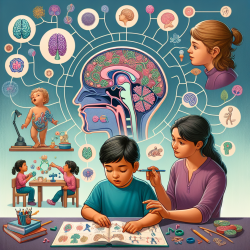Introduction
In the realm of special education, professionals often face complex challenges that require innovative solutions. The recent study on the DREAMS (Determined, Resilient, Empowered, AIDS-free, Mentored, and Safe women) Partnership's implementation in Zambia provides valuable insights that can be applied to enhance the delivery of special education services. This blog explores key findings from the study and discusses how special education practitioners can leverage these insights to improve their practice.
Understanding the DREAMS Implementation
The DREAMS Partnership is a multisectoral HIV prevention initiative aimed at reducing the risk of HIV among adolescent girls and young women (AGYW) in sub-Saharan Africa. The study conducted in Zambia identified several successes and challenges in the implementation of the program. These insights can be instrumental for special education professionals seeking to implement multisectoral approaches in their practice.
Key Insights and Their Application in Special Education
- Comprehensive Coordination Systems: The study highlights the importance of robust coordination systems between implementing partners. In special education, this translates to effective collaboration between educators, therapists, and families to ensure cohesive service delivery.
- Real-Time Adaptation: The ability to adapt implementation strategies in real-time was crucial for the success of the DREAMS program. Special education practitioners can benefit from flexible work plans that allow for adjustments based on student needs and feedback.
- Engagement of Stakeholders: Engaging male partners and parents was identified as a challenge in the DREAMS program. Similarly, in special education, involving parents and caregivers is essential for creating supportive environments for students.
- Investment in Infrastructure: The study emphasizes the need for investment in infrastructure, such as electronic data capture systems. In special education, investing in technology and resources can enhance the effectiveness of service delivery.
Encouraging Further Research and Implementation
Special education practitioners are encouraged to delve deeper into the findings of the DREAMS study and consider how these insights can be adapted to their context. Further research into multisectoral approaches in special education can lead to more effective strategies for addressing the diverse needs of students.
Conclusion
The DREAMS implementation in Zambia offers valuable lessons for special education professionals. By adopting a multisectoral approach, investing in infrastructure, and engaging stakeholders, practitioners can enhance their service delivery and better meet the needs of students. For those interested in exploring the original research paper, please follow this link: Multisectoral, Combination HIV Prevention for Adolescent Girls and Young Women: A Qualitative Study of the DREAMS Implementation Trajectory in Zambia.










